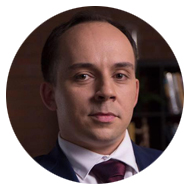The new law on education will take control of master classes and educational videos on the Internet. This became clear from the resolution published last week. We tell you what happened.
At the end of March, the Federation Council approved the law on educational activities. According to him, it should be regulated by federal ministries.
However, at that time, it was not completely clear who could be engaged in education and on what conditions. The situation has become clearer the other day.
On April 23, a draft resolution appeared on the government’s website that regulates educational activities. In it, the Ministry of Education of Russia finally indicated what forms education can have, and also shared the requirements for those who are engaged in it.
Recall, according to the law, education is “an activity carried out outside of educational programs, which is associated with the dissemination of knowledge and experience, the formation of skills and abilities, as well as values and competencies for the intellectual, creative and professional development of a person.”
The latest draft resolution states that this definition includes:
- organization of presentations and lectures;
- conducting seminars, master classes, round tables, discussions;
- placement or distribution of information and printed materials, including on the Internet;
- demonstration or distribution of video and audio materials, including on the Internet;
- creation of educational Internet portals;
- “other forms that ensure the achievement of the goals of educational activities.”
Separately, officials list the topics on which education is carried out. Among them there are, for example, “popularization of the achievements of modern science and technology” and “dissemination of knowledge about the forms and methods of generating innovative approaches aimed at creating new innovative socially significant products, discoveries, non-standard solutions”. In theory, because of these points, courses and conferences related to the gaming industry may fall under the definition of educational activities.
Education can be engaged in:
- state authorities and other state bodies;
- local self-government bodies and organizations authorized by them;
- individuals;
- individual entrepreneurs;
- legal entities.
Special requirements are put forward for the last three categories:
- for any educational activity, you will have to conclude a special contract with an educational, scientific or cultural institution;
- individuals and sole proprietors must be non-convicted adults with at least two years of teaching experience. It’s not bad if they “participated in the implementation of socially significant initiatives”;
- legal entities should not have the status of a “foreign agent” and debts. Employees who are engaged in education must meet the requirements for individuals;
- in addition, a legal entity is obliged to publish data on the company and educational employees on its official website, as well as place contracts for educational classes.
Now the draft government decree is under discussion and proposals can still be made to it. But amendments to the law “On Education in the Russian Federation” should come into force on June 1, 2021.
Now let’s move on to the legal comment about what problem areas there are in the current document. He was prepared for App2Top.ru Roman Lukyanov, Managing Partner of Semenov &Pevzner Law Firm.
Roman Lukyanov
While this is not the final version and it is unknown what the document will be in the end.
But I would like to draw attention to the fact that, according to the first paragraph of the regulation, it applies only to “organizations engaged in educational, scientific and cultural activities.”
That is, if educational activities (to which many forms present at conferences are now unambiguously attributed – master classes, seminars, discussions, round tables) are carried out by an organization that is not mentioned in the first paragraph, then, according to the logic of the provisions, it does not apply to such organizations.
For the rest, including universities, these requirements will be mandatory.
What happens if these requirements are not met is still an open question, but I suspect that for educational organizations this may turn into problems with the license. Formally, there are no special sanctions, as far as I can understand, now for violating this procedure, the law does not provide.
There is another problem with this provision. For example, it is unclear whether the conference is a form of educational activity and what exactly the legislator understands by seminars, master classes, discussions, etc. Especially under discussions. They mean a very wide range of very different communications between people. In a literal interpretation, a discussion, say on Facebook, can be interpreted as a discussion, with all the ensuing requirements.
It is also not very clear what to do with the contract that is proposed to be concluded with the “consumer” of the results of educational activities (with viewers of video courses, for example).


